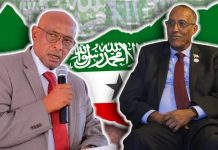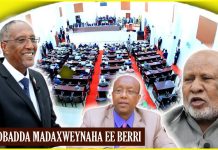Informing humanitarians worldwide 24/7 — a service provided by UN OCHA <!– TEMPORARY – COVID-19 – disabled – 2022/03/31 RW COVID-19 page: Find latest updates on global humanitarian responses –>
Find help on how to use the site, read terms and conditions, view the FAQs and API documentation.
Access your account or create a new one for additional features or to post job or training opportunities.
Latest humanitarian reports, maps and infographics and full document archive.
List of countries covered by ReliefWeb.
List of alerts, ongoing and past disasters covered by ReliefWeb.
List of organizations that are actively providing ReliefWeb with content.
Curated pages dedicated to humanitarian themes and specific humanitarian crises.
Open job opportunities in the humanitarian field.
Open training opportunities in the humanitarian field.
Somalia
Calls recorded on Radio Ergo’s independent toll-free feedback platform this week (2-8 March 2022) follow the trend from recent previous weeks with the impact of the drought intensifying, according to listeners across the country. Somaliland regions and Galmudug stand out in terms of the highest number of calls. Middle Shabelle and Gedo regions in the south were also prominent. A critical lack of water was commonly described, with people saying they and their livestock are in dire circumstances. Communities displaced from their home areas appealed for help. Livestock herders asked for treatment and vaccinations for their animals.
Calls about COVID19 were slightly up with questions about the disease and the vaccine. The following summarises the calls by theme.
Drought impact and water crisis – among the Somaliland callers, one herder said they were now destitute as they had not been able to sell their livestock. A caller in Awdal said their livestock were weak and thin. A caller in Salahley said the area was peaceful but they lacked water and fodder. There was a large number of calls from Togdher region. A caller in Tala-bur said water aid had been diverted and had not reached them. Among the many callers from Buhodle, one said their livestock were starving and they had no safe drinking water. Another said the land was bare, water was scarce and the animals were weak. Most appealed for aid. A caller in Sarar suggested national prayers for rainfall. Callers in various parts of Sanag asked for intervention to enable them and their herds to survive the prolonged harsh conditions. In Sool, a caller in Awr-bogeys said lack of clean water was their major problem and the children were sick with diarrhoea. A caller in Hudun said they needed water and food. A caller in Lasanod said people were becoming vulnerable and needed aid services. Callers in Puntland complained of lack of government attention to the crisis. In Mudug, a caller in Qalanqal said the only water left was undrinkable for people and animals, and monkeys were attacking as they tried to access it. Callers in Abudwak, Galgadud, said the drought was killing livestock and there were no jobs. IDPs in a camp in Adado said they had no water. A female caller in Ariadays said the drought was leading to death and displacement. A caller in Bali Ad northeast of Guriel welcomed a new borehole constructed in their area which meant they were no longer reliant on water trucking. In Guriel, a caller said they were facing drought, conflict, and inability to sell their livestock. Another said their donkey was no longer strong enough to fetch water. A female caller in Shilamadow said she was among 100 drought-hit families in the area in urgent need of water and aid. In Middle Shabelle, a caller in El-Maan said their livestock were unable to walk. A caller in Jowhar said prices of water, food and fuel were escalating and people were becoming destitute. Callers in various parts of Gedo said they had no water and livestock were dying, including one in Bardera who said the district had been ravaged by drought.
Livestock – among the callers about livestock health, a caller from Karkar said vaccination teams had come to their area but had not attended to all the animals. A caller in Middle Shabelle said they did not know if their livestock were dying from drought or diseases and they wanted veterinary diagnosis and treatment.
COVID19 – callers from different regions had questions about the symptoms of Coronavirus compared with flu, and about the efficacy of COVID19 vaccines.
Somalia
Somalia
Somalia
Somalia
ReliefWeb's blog
ReliefWeb Labs projects explore new and emerging opportunities to improve information delivery to humanitarians.
Learn more about ReliefWeb, leading online source for reliable and timely humanitarian information on global crises and disasters since 1996.
ReliefWeb's terms & Conditions.
Contact us.
Service provided by UN OCHA
OCHA coordinates the global emergency response to save lives and protect people in humanitarian crises. We advocate for effective and principled humanitarian action by all, for all.
ReliefWeb's Terms & Conditions.
© 2022 all rights reserved.














